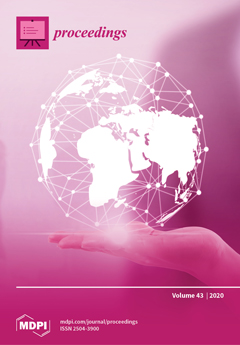Open AccessMeeting Report
Proceedings of the 10th Alcohol Hangover Research Group Meeting in Utrecht, The Netherlands
by
Agnese Merlo, Zack Abbott, Chris Alford, Stephanie Balikji, Gillian Bruce, Craig Gunn, Jacqueline Iversen, Jim Iversen, Sean J. Johnson, L. Darren Kruisselbrink, Aurora J. A. E. van de Loo, Marlou Mackus, Chantal Terpstra, Ann-Kathrin Stock and Joris C. Verster
Cited by 2 | Viewed by 1734
Abstract
The hangover is the most commonly reported negative consequence of alcohol use with several studies reporting the detrimental consequences of hangover on health, economy, and society. Research has emphasized the socioeconomic consequences of experiencing these physical and psychological symptoms in relation to absenteeism,
[...] Read more.
The hangover is the most commonly reported negative consequence of alcohol use with several studies reporting the detrimental consequences of hangover on health, economy, and society. Research has emphasized the socioeconomic consequences of experiencing these physical and psychological symptoms in relation to absenteeism, increased risk of having accidents and injuries, and impairment of daily activities, such as job performance and driving a car. During the 10th Alcohol Hangover Research Group meeting, held on 29 April 2018, in Utrecht, The Netherlands, aspects of alcohol hangover were presented with regards to determinants, biological and cognitive consequences and potential treatments. Precursory and posterior factors influencing alcohol hangover, including biological, psychological, behavioral, metabolic aspects, cognitive functioning, and the role of the immune system in the development of alcohol hangover, were presented. In addition, potential preventive measures and treatments of alcohol hangover to reduce the adverse consequences of alcohol consumption and hangover symptoms were discussed. One study revealed that an average of 24% of social and heavy drinkers claimed not to experience hangover symptoms across time. Another study showed that food intake (either healthy or junk food) had no significant impact on next-day hangover severity. Research examining cognitive and psychomotor functioning during hangover revealed impairments in collective problem solving and response inhibition, but not attentional bias towards alcohol-related cues. The alcohol hangover state further significantly impaired driving performance, even for a short commute to work. With regard to the pathology of the alcohol hangover, research was presented that demonstrated increases in saliva cytokine concentrations confirming drinking alcohol and the hangover phase are both associated with an immune response. Other presentations discussed that scientific literature shows that there are no effective hangover treatments available yet. However, although promising, new hangover treatments are currently in development. Taken together, at the 10th Alcohol Hangover Research Group meeting, a comprehensive overview of the causes, consequences, and potential treatments of the alcohol hangover was presented.
Full article
(This article belongs to the Proceedings of
Proceedings)



